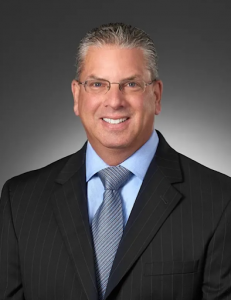Newfield Law Group Defends “Own Occupation” and “Any Occupation” Disability Claims
Newfield Law Group in Melville, NY, led by Jason Newfield, Esq., specializes in “own” and “any” occupation disability claims. Contact for a free consultation.
MELVILLE, NY, USA, July 2, 2024 /EINPresswire.com/ -- In New York and throughout the country, Jason Newfield, Esq., is well known as a skilled disability insurance lawyer. For more than two decades, he has helped people secure their long-term disability insurance benefits and long-term care insurance coverage. Mr. Newfield assists residents from New York State, New Jersey, California, and across the United States with matters concerning group or ERISA long-term disability insurance as well as private or individual disability insurance. He represents clients with disability claims, appeals and litigation, and has litigated cases in Federal Courts across the country, as well as argued before the Federal Appellate Courts.One issue Mr. Newfield sees on a recurring basis concerns the definitions and claim treatment of the policy terms “own occupation” and “any occupation.” Own occupation may vary by policy but is typically the occupation a claimant has engaged in professionally. For instance, a surgeon who has an own occupation policy, usually a private disability policy, is insuring their ability to perform as a surgeon. Own Occupation for a private policy is very job-specific. In contrast, a group LTD (ERISA) policy might carry a more generic definition of Own Occupation, which might be generally how that job is typically performed.
A person who has an “any occupation” disability policy, or where a group LTD (ERISA) policy has a change in definition, is insured against their ability to work but not in any particular occupation. It is quite generic and insurer-favorable. Thus, a CPA who cannot perform the necessary tasks of being a CPA might have their disability claim denied because the insurance company could say they are able to work in some different job at a lesser demand level, and based upon some skills or other experience they might have.
An “own occupation” policy will always provide greater protection for a person who has invested time and money in specialized education and training. Many medical professionals are sold this valuable coverage. If a worker cannot perform the material and substantial duties of their job, and it is medically supported, the “own occupation” disability policy should provide coverage. When the disability insurance company denies a claim, a consultation with a long-term disability insurance attorney is the next step to take to guide the process and advocate for the benefits.
A few facts to know:
•An any occupation policy only provides benefits if the person is unable to work in any occupation – considering one’s education, training, or experience. This is not enough disability coverage for a high-income earner. It puts their income and lifestyle at risk.
•Some disability insurance policies appear to be own occupation but include provisions that limit the own occupation phase of coverage to a short period of time, usually 24 or 36 months, when the policy transitions to any occupation. This is more common in ERISA or group LTD policies secured through one’s employment than they are with private or individual policies and are known as “hybrid” policies.
•Other “own occupation” policies also state that you cannot be working in any occupation, greatly limiting one’s ability to work around their impairments.
•Disability attorney Jason Newfield recommends anyone considering filing a disability claim locate their original disability policy and review it carefully, looking for any provisions concerning “own” or “any” occupation.
“Most claimants purchase a disability insurance policy without understanding what it is they are buying. When you get disability insurance from your employer, the coverage has a number of significant limitations as compared to an individual disability insurance policy,” says Newfield. “A professional who invested years of education and specialized training needs to have an own occupation policy.”
The disability insurance policies do have language that does not require a surgeon to become a retail clerk. There are considerations which must be undertaken, even if loosely. The word “gainful” is used to indicate the possible occupation that needs to pay a minimum salary, which is a certain percentage of the person’s salary before they become disabled. Each policy is different, Mr. Newfield explains, so claimants need to examine their disability policy to understand the coverage.
Jason Newfield, Esq., a highly experienced ERISA disability attorney, invites anyone who is struggling with their disability claim to contact his office for a free consultation. He routinely takes the time to speak with individuals from all occupations to help them understand what their policy will and will not cover and what they can expect from the disability insurance company. He is honest and compassionate, believing that all people deserve to have the information they need to make an informed decision about what they need to do to protect their claim.
About Us: Situated in Melville, New York, Jason Newfield, Esq. is a renowned national disability insurance lawyer, offering robust legal representation across various disability and long-term care issues and situations. His vast experience has led to many successful case resolutions, claim approvals and client satisfaction. Martindale-Hubbell® has rated Mr. Newfield an AV® Preeminent 5 out of 5 attorney, its highest possible designation. Super Lawyers has named Mr. Newfield to its select list of New York metro attorneys for twelve years, and he enjoys a 5-star rating from legal rating service Avvo and a 4.9 rating from Google My Business.
Jason Newfield Esq.
Newfield Law Group
+1 877-406-7883
Jason@Newfieldlawgroup.com
Visit us on social media:
Facebook
LinkedIn
Legal Disclaimer:
EIN Presswire provides this news content "as is" without warranty of any kind. We do not accept any responsibility or liability for the accuracy, content, images, videos, licenses, completeness, legality, or reliability of the information contained in this article. If you have any complaints or copyright issues related to this article, kindly contact the author above.


